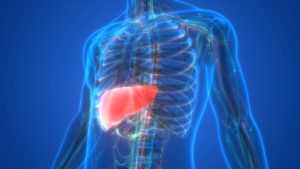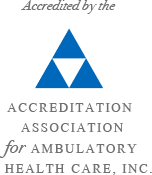Let’s Talk Fatty Liver Disease
 When we think about essential bodily organs, there are two primary candidates: our brain and our heart. However, every single organ in the body has a role in something, which makes every organ essential. Logically, we know this. It’s just that, if we were to develop a condition such as fatty liver disease, we may not realize it. Here, we discuss why we need to expand our awareness and respect for every organ that works to support optimal health.
When we think about essential bodily organs, there are two primary candidates: our brain and our heart. However, every single organ in the body has a role in something, which makes every organ essential. Logically, we know this. It’s just that, if we were to develop a condition such as fatty liver disease, we may not realize it. Here, we discuss why we need to expand our awareness and respect for every organ that works to support optimal health.
Fatty liver disease is a condition that can have a significant impact on quality of life, yet it is not something we hear about very often. The condition is exactly as it sounds. Fatty liver disease develops when an excessive amount of fat builds up in the liver. This can occur in one of several ways. Here, we focus on non-alcoholic fatty liver disease.
- Non-alcoholic fatty liver disease involves fat buildup without inflammation.
- Non-alcoholic steatohepatitis involves fat buildup combined with liver inflammation.
According to research published in the World Journal of Gastroenterology, 25 to 30 percent of people in the United States and Europe experience non-alcoholic fatty liver disease. Non-alcoholic fatty liver disease without inflammation can progress to non-alcohol steatohepatitis with inflammation. Both of these conditions can result in cirrhosis of the liver.
Common causes of non-alcoholic fatty liver disease include:
- Diabetes
- High cholesterol
- Obesity
- Certain medications
Are There Signs of Fatty Liver Disease?
Non-alcoholic fatty liver disease typically does not present notable symptoms. To be clear, alcoholic fatty liver disease has few early warning signs, too. Symptoms typically occur once the condition has progressed. Then, in either case, symptoms may be as subtle as fatigue, nausea, loss of appetite, and pain in the upper right abdomen.
What Can I Do About Fatty Liver Disease?
Non-alcoholic fatty liver is the first stage of liver disease. It is reversible, but unfortunately often goes undiagnosed. On the bright side, there are strategies that can help slow or stop the progression of this liver disease. Suggestions include:
- Limit or abstain from alcohol.
- Avoid overeating and, if overweight, implement healthy strategies to lose weight.
- Cut back on refined carbs including white rice, white pasta, white bread, soda, and most processed foods.
- Consume foods that help reduce liver fat, including whey protein, soluble fiber (nuts, seeds, beans, lentils), and green tea.
- Exercise for 30 to 60 minutes, five days a week. High-intensity interval training has a significant impact on fatty liver.
Getting the Care You Need
Liver health is paramount when we consider what this organ does. If you exhibit the signs of alcoholic or nonalcoholic fatty liver disease, you can benefit from the guidance of a board-certified gastroenterologist. We are proud to serve patients in New York City. Contact us today to schedule a visit to one of our two convenient locations.


